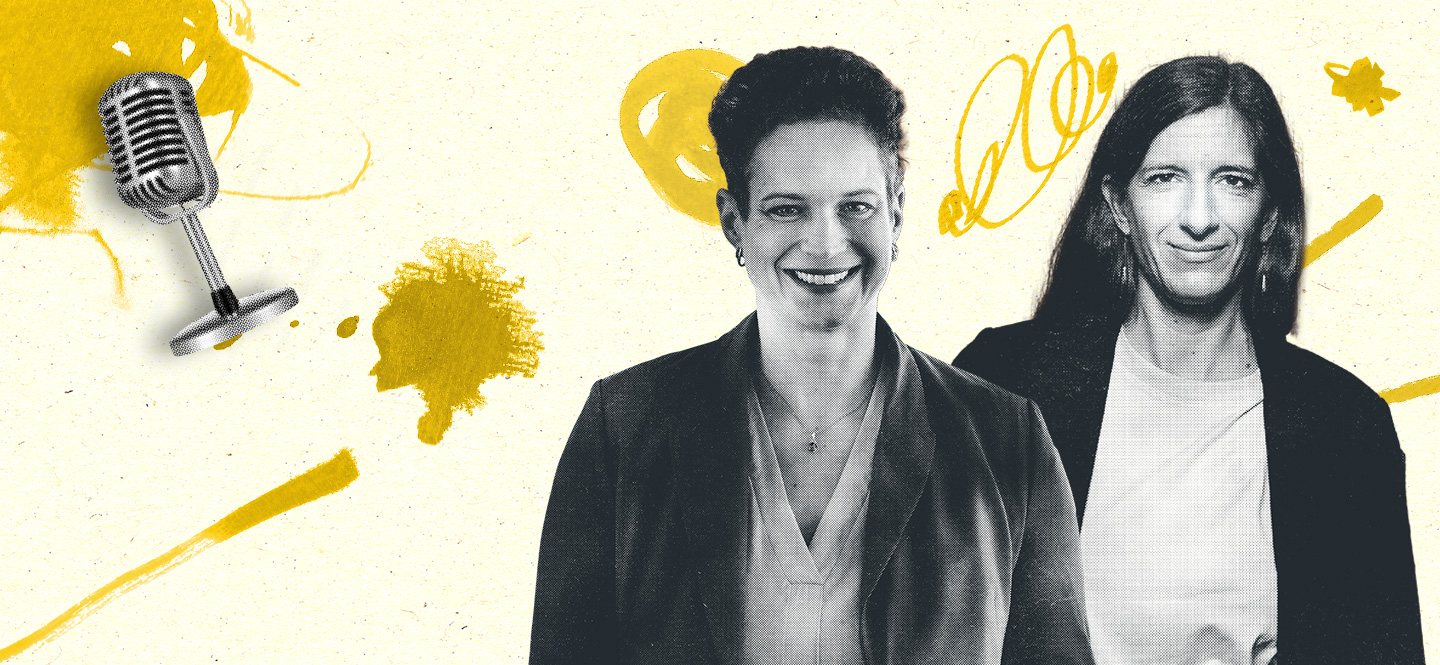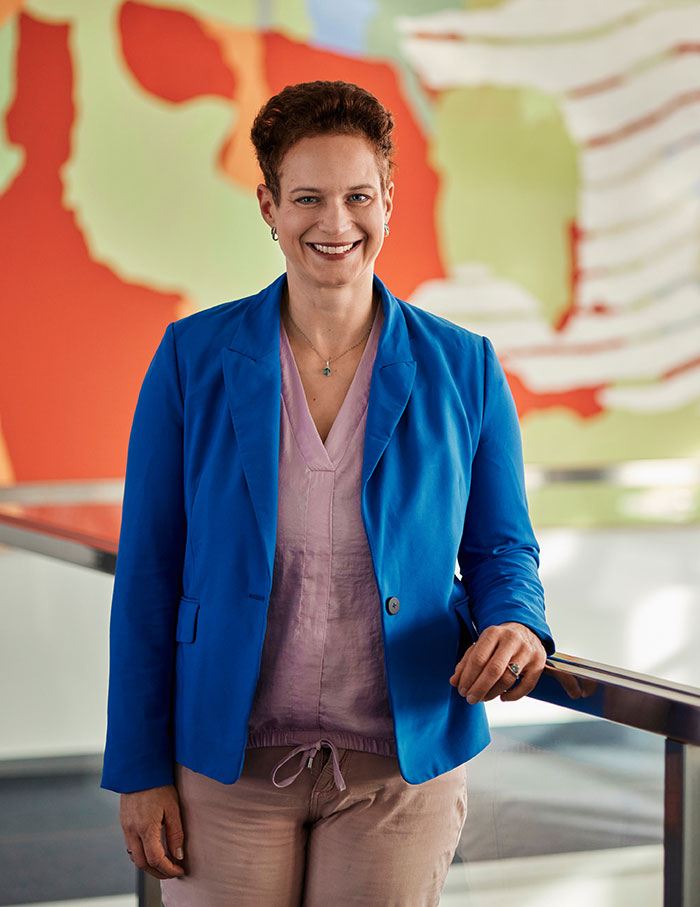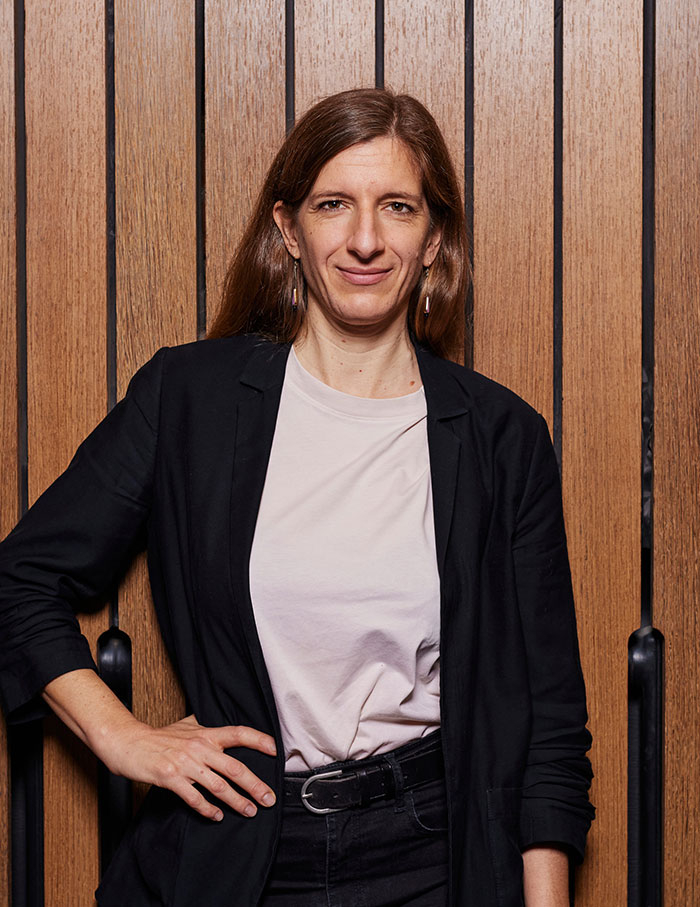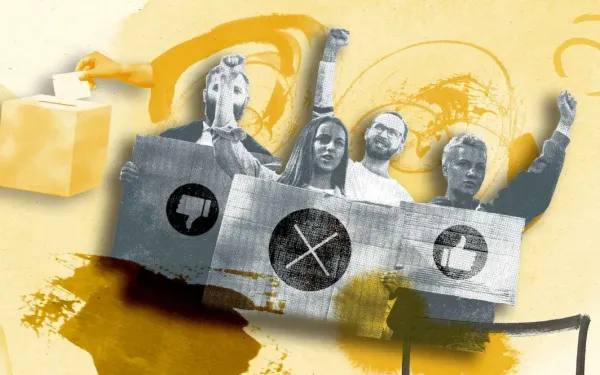
VolkswagenStiftung
Research for democracy: funding programme for cooperation projects involving researchers and stakeholders in practice
#DemocracyHow do democracies change in the face of global challenges? And what can science contribute to their resilience? Researchers and stakeholders outside of academia are to develop answers in cooperation projects funded by the Volkswagen Foundation for up to five years. Nora Kottmann and Cora Schaffert-Ziegenbalg present the programme.
Democracies are under pressure worldwide. Different perspectives must be brought together in order to find solutions to the diverse challenges involved. The funding programme Transformational Knowledge on Democracies under Change – Transdisciplinary Perspectives supports researchers and partners from outside academia in investigating pressing questions about the future of democracy, testing new models, and developing concrete recommendations for action. The aim is to better understand and shape processes of democratic change. The closing date for applications is 9 September 2025. Nora Kottmann, Deputy Team Leader of the Societal Transformations profile area and Cora Schaffert-Ziegenbalg, the responsible funding coordinator, answer questions about the funding offer.
You have to engage in a real change of perspective...
The funding initiative "Transformational Knowledge on Democracies in Transition" consists of two funding lines: one for task forces and one for cooperation projects: the call for the latter has just been published. Who are they aimed at?
Dr. Cora Schaffert-Ziegenbalg: The cooperation projects are aimed at postdoctoral researchers from the humanities, cultural studies and social sciences who want to work together with partners drawn from civil society – NGOs, public authorities the media, art and culture – to develop new perspectives on democratic processes. The aim of the cooperation projects is to analyse challenges and unresolved issues in depth over a period of up to five years. This differs from the task forces call, which we expect to announce again at the end of 2026. Here, the research groups deal with a very specific and urgent issue within a one-year time window. This calls for creative methods to develop both scientific findings and practice-oriented recommendations.
Dr. Nora Kottmann: There is a vast range of possible topics! For example, we are currently funding projects on teaching democracy in religious education, grassroots movements in Eastern Europe, citizens' councils and much more. Regardless of the topic, it is very important to us that the projects are actually designed to be transdisciplinary. This means that researchers and partners from outside the academic community work together in equitable partnership. This applies to the entire process – from identifying the research question, through developing and implementing the research design, to processing and disseminating the results. This calls for deep commitment – you have to engage in a real change of perspective – and have a genuine interest in (co-)shaping social transformational processes.
What did you take away from the last round of calls – and what can you give applicants to take with them?
Schaffert-Ziegenbalg: In the first round of calls for proposals in 2024, we received a good 70 applications for cooperation projects – a really impressive number. Of these, eleven projects received funding approval. What really struck us was the diversity of perspectives: Researchers and practice partners are approaching the topic of democracy in transition from very different directions. We had not expected the many different lines of proposed research that were submitted – that really surprised us.
The call for proposals has made it very clear how much we are all concerned: What will democracy look like in the future – and what value will it have worldwide? But something else has also become clear: Only where both sides – science and practice – pull together, where there is genuine interest in joint research and finding solutions, only then do projects really have a chance. During the evaluation process, it became very clear which teams were able to engage with each other on equitable terms and where either the scientific or the practical part showed a tendency to dominate. In the end, only the applications in which both parts were balanced and of high quality were convincing.
Kottmann: If you want to prevail against strong competition, you also have to stand out – with innovative or surprising ideas in an all-round well-thought-out application. It is important for us to see that projects can actually have an impact, in the sense that they have the potential to positively influence democratic structures. This also includes considering at an early stage how the results and recommendations for action can be communicated creatively and convincingly to relevant stakeholders.

Cora Schaffert-Ziegenbalg is the responsible programme manager for the initiative "Transformational Knowledge on Democracies under Change – Transdisciplinary Perspectives" within the profile area "Societal Transformations".
To ensure that the application not only fulfils all requirements in terms of content, but also formally, it is worth taking a closer look at the information sheet (PDF, 166.3 KB) on our website. It contains everything you need to know – from the assessment criteria to the deadlines and information on our online Q&A.
What happens after the application is submitted and what does the selection process look like?
Kottmann: The selection process is a two-stage process: first there is a written preliminary assessment, following which we invite selected project teams to our selection days. There, they present themselves to the review panel in different formats. We put together the panel in line with the applications submitted, coordinated across disciplines and with relevant non-academic perspectives. We are also breaking new ground in the design of the selection process: since 2024, we have had our transdisciplinary funding programmes evaluated – and have already implemented initial recommendations.
For example, we have set up a completely new possibility for online consultation aimed specifically at the practice partners so that we will be better able to answer their questions in a targeted manner. And we have further developed the in-person selection days so that they make the desired cooperation on equitable terms more tangible – and ideally contribute to networking and building a scientific, transdisciplinary community
Schaffert-Ziegenbalg: During the selection days, the reviewers get to know the teams in pitches, poster presentations and interviews – and thus gain an impression of how well the collaboration within the teams works and how strongly the project idea is supported by all the participants. At the same time, joint formats create a dialogue between the applicants. With this new process, we not only want to identify the best projects, but also promote networking and mutual familiarisation. Anyone submitting an application should be open to new formats and to exchanging ideas with other teams.

Nora Kottmann is the deputy head of the profile area "Societal Transformations".
What are the applicants expected to take away from this process?
Schaffert-Ziegenbalg: It is important to look closely at which of the funding lines suits your own project – cooperation projects or task forces. Task forces address topical and urgent issues with the aim of developing concrete recommendations for action within a time frame of one year. This clearly distinguishes them from cooperation projects, which are dedicated to highly complex, multi-layered questions that can only be answered by involving different disciplines and different non-academic perspectives, including international participation, if appropriate.
Both funding lines entail different ways of working in the realms of science and practice – and both have proven their worth. The high media presence of the funded projects from the first round of calls shows us that we are on the right track and can be effective with both funding opportunities. However, not every idea is suitable for both funding lines. It is therefore essential to visit one of our online consultations to find the right one for you. If you still have questions, feel free to get in touch with me personally!
Kottmann: And check that the thematic focus is actually on democratic processes. We would also be happy to support applications with a global or comparative view and look forward to receiving your proposals! For with this funding line is intended to make a significant contribution to understanding processes of democracies in transition, to promoting constructive debates, and to developing concrete ideas and solutions on how democracies can be shaped in the future.

